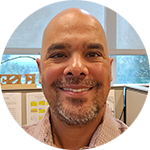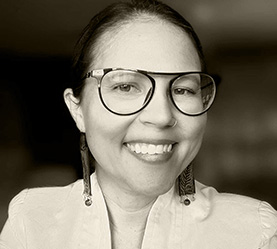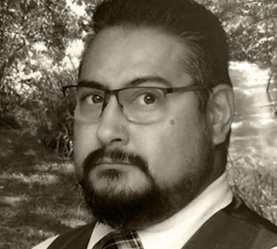Become a Trauma Informed Leader
Children who have experienced trauma have lost control over a major element of their lives and the desire to gain control can lead to behavioral challenges and difficulty learning in the classroom. Cal State East Bay’s online Trauma Informed Specialist Program prepares you to respond to the needs of students impacted by trauma and create safe and empowering environments for staff and students while reducing turnover in schools. Throughout the program, you’ll work with a cohort of peers to learn the brain science behind behavior and learning, develop mindfulness strategies, make systemic change to disrupt retraumatizing practices, and promote educator wellbeing.
Selected as a "Best in the West" college by The Princeton Review
Become a Trauma Informed Specialist in a completely online environment
Developed and taught by experienced leaders in the fields of education and school psychology
Become a Better Advocate for Your Students
Trauma Informed Specialists are recognized at their schools and organizations as leading examples of best practices in supporting students who have experienced trauma in general education, special education, higher education, and non-public school settings. As a Trauma Informed Specialist, you’ll understand how to support students who have experienced trauma and adapt the learning environment to successfully meet their academic, socio-emotional, and behavioral needs. In addition, our program ensures that you have built a strong foundation of self-care and awareness to limit the impact of vicarious trauma on students' personal functioning.
Expand Your Teaching Practice
When you complete Cal State East Bay’s Trauma Informed Specialist Program, you’ll have the tools and knowledge to offer expertise and training in addition to your current job description. Furthermore, your teaching practices can improve outcomes for students and become a model for others at your school or organization.
Upon completing the program, many successful graduates are compensated with a stipend or become a teacher on special assignment at their current school or organization. And as more and more districts recognize the Trauma Informed Specialist as a specific role, more job opportunities are available for those looking to provide professional development, coach, spend time supporting students, and serve on district committees.
You’ll also have access to professional learning opportunities throughout your career so you can stay up-to-date with current trends in the field. As participants in the program, you’ll become lifetime members of the Center for Social Resilience and can participate in the Center’s monthly guest lecture series with inspiring educators around the globe who are working to promote cognitive diversity and compassionate education in their communities.
Program Objectives
Cal State East Bay’s Trauma Informed Specialist Program is designed to address the needs of educators and administrators by providing tools for supporting students and practicing self care in order to promote resiliency and prevent burnout.
At the completion of the program, you’ll have the ability to:
- Understand the symptoms and causes of trauma.
- Explain the brain science behind behavior and learning.
- Implement mindfulness strategies and personalized learning in classrooms.
- Practice self-care strategies in order to reduce burnout and address vicarious trauma.
- Become a Trauma Informed Coach and use the modules and resources to support and train schools.

The TIS program is a great foundation for understanding and working with all students. The knowledge learned in this course is critical for anyone working in people-oriented fields, leaving you with a sense of empathy and compassion for others, as well as greater self-awareness.

After completing the program, I had the knowledge and confidence to start a new coaching business focused on empowering parents/educators/carers to create neuroinclusive cultures that support neurodivergent youth. This is a passion of mine, and the strong mentorship I received in the TIS program was instrumental in my ability to realize this goal.
Program Format
The program is delivered in a completely online format. Participants are expected to attend an online two hour webinar once a month, as well as participate in the online modules and a two hour small group reflective supervision online meeting that takes place once a month.
Program Requirements
To complete the program, you must pass the following 4 required courses:
PART I
Principles of Trauma for Educators (3 units)
Reflective Supervision for Educators (1 unit)
PART II
Trauma Supportive Schools (3 units)
Advanced Trauma Informed Reflective Supervision (1 unit)
Advisory Board:
Dr. Greg Jennings
Dr. Jack Davis
Shaquam Edwards
Sarah Shaw MPH
Dr. Paulina Whitehat
Next, learn all about admission requirements and how to apply »
Admission Requirements
To be considered for admission to the program, you must hold a minimum of a bachelor’s degree and have 2-3 years of experience working in an educational setting.
How to Apply
To apply to the program, complete the application form below.
At Cal State East Bay, we pride ourselves on putting students first, from the moment you inquire until you graduate. We hope you've found answers to your questions in this support center, but if not, please get in touch.





